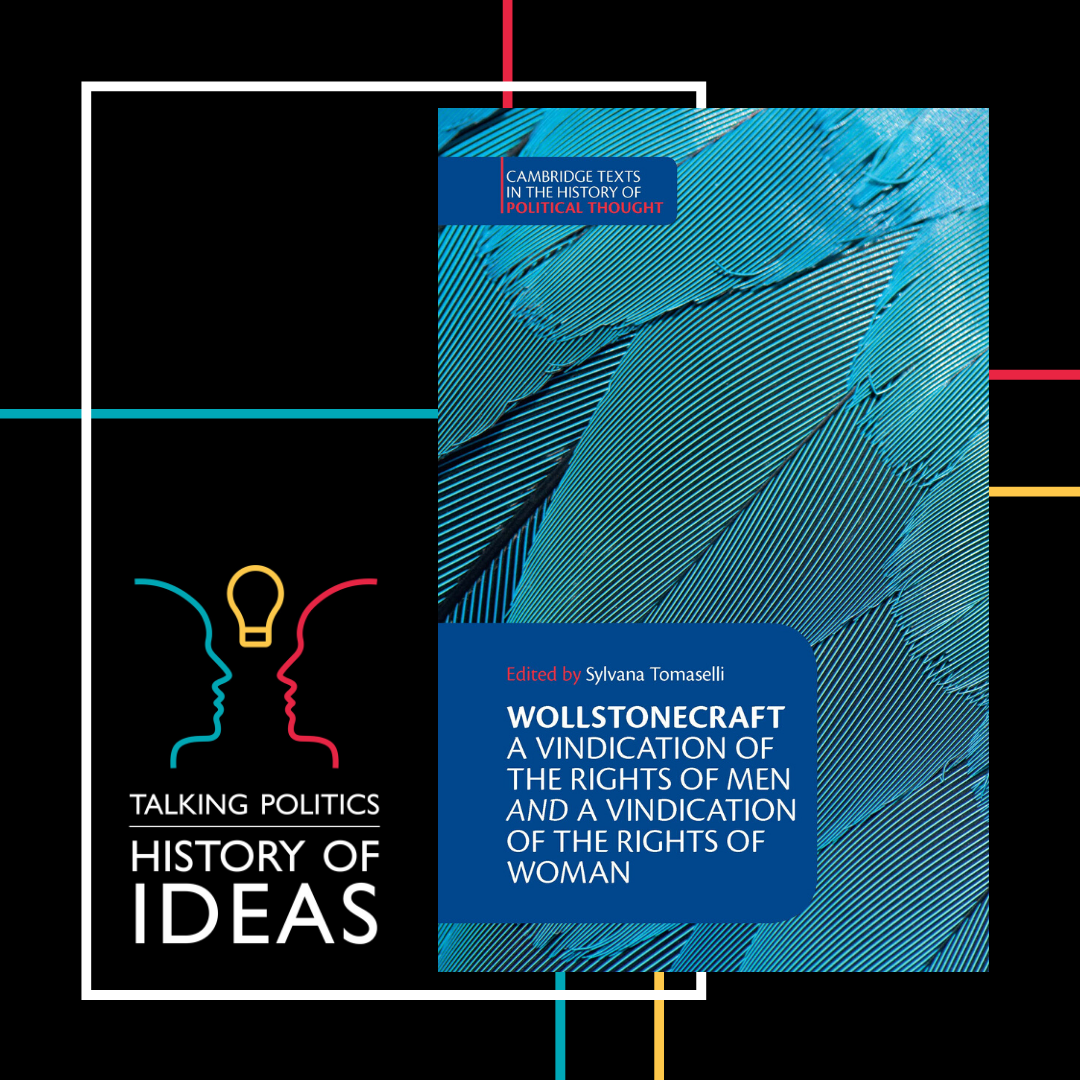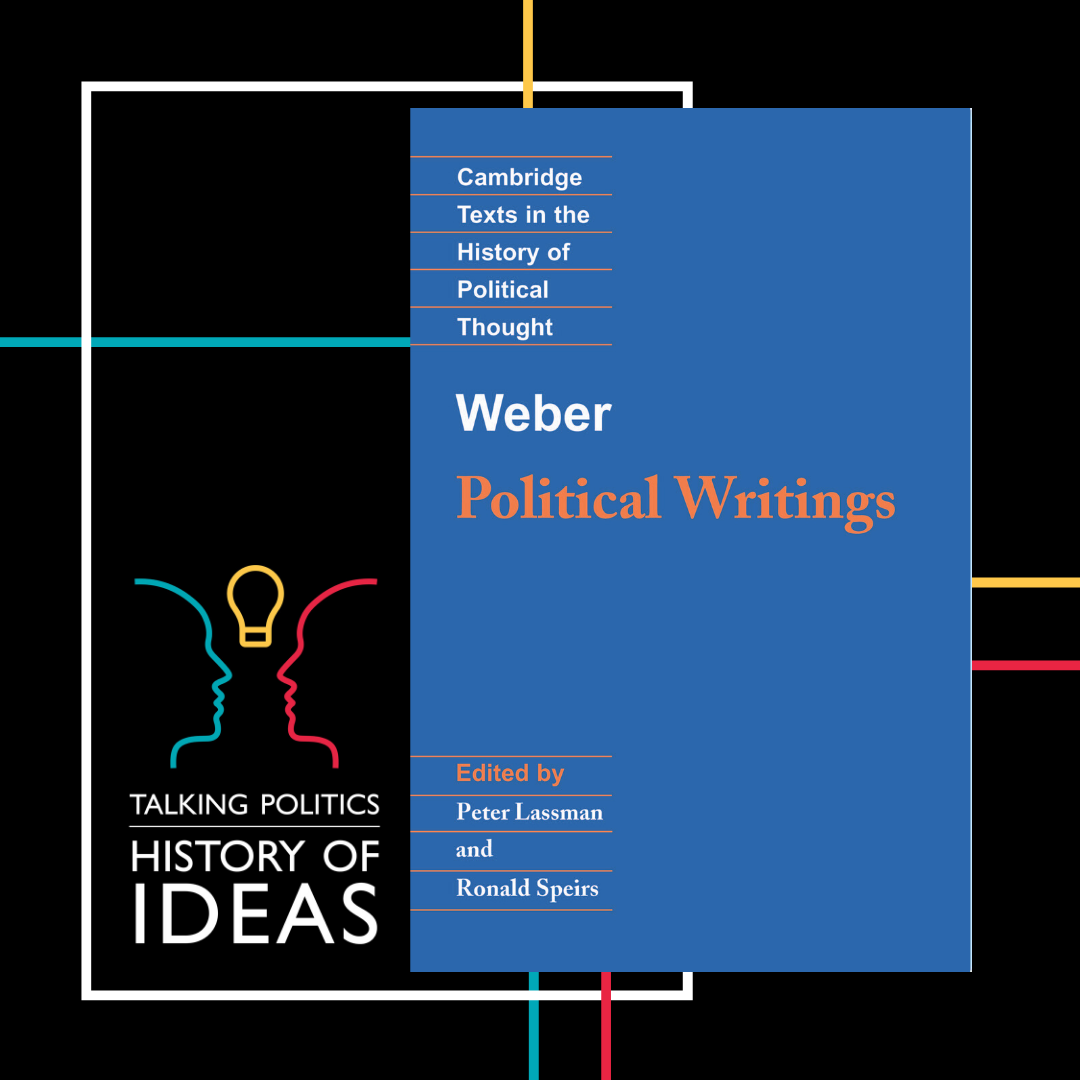https://www.talkingpoliticspodcast.com/history-of-ideas
Talking Politics | History Of Ideas

History Of Ideas is a new series of talks by David Runciman in which he explores some of the most important thinkers and prominent ideas lying behind modern politics – from Hobbes to Gandhi, from democracy to patriarchy, from revolution to lock down.
David also talks about the crises – revolutions, wars, depressions, pandemics – that generated these new ways of political thinking.
Created by the team that brought you Talking Politics: this podcast is a history of ideas to help make sense of what’s happening today.
“This podcast is a treasure! It is both entertaining and intellectually demanding… a shelter in the middle of this pandemic storm. I can’t thank you enough for taking the time to record it.” Apple Podcast Listener
“A magnificent spin-off podcast series from Talking Politics – it’s like a third (and better) year of A Level politics.” Twitter Follower

Hobbes On Power | Leviathan, 1651
Thomas Hobbes’s Leviathan reimagined how we could do politics. It redefined many of the ideas that continue to shape modern politics: representation, sovereignty, the state. But in Leviathan, these ideas have a strange and puzzling power. David explores what Hobbes was trying to achieve and how a vision of politics that came out of the English Civil War can still illuminate the world we live in today.
Going deeper…

Wollstonecraft On Sexual Politics | Vindication of the Rights of Woman, 1792
Mary Wollstonecraft’s A Vindication of the Rights of Woman is one of the most remarkable books in the history of ideas. A classic of early feminism, it uses what’s wrong with the relationship between men and women to illustrate what’s gone wrong with politics. It’s a story of lust and power, education and revolution. David explores how Wollstonecraft’s radical challenge to the basic ideas of modern politics continues to resonate today.
Going deeper…

Constant on Liberty | Liberty of the Ancients vs the Liberty of the Moderns, 1819
Benjamin Constant’s The Liberty of the Ancients Compared to the Liberty of the Moderns examines what it means to be free in the modern world. Are we at liberty to follow our hearts? Do we have an obligation to take an interest in politics? What happens if we don’t? David explores the lessons Constant drew from the failures of the French Revolution and his timeless message about the perils of political indifference.
Going Deeper…

Tocqueville on Democracy | Democracy in America, 1835-40
Alexis de Tocqueville’s Democracy in America can claim to be both the best book ever written about democracy and the best book ever written about America. David discusses what Tocqueville was expecting when he went to see American democracy for himself and what he actually found. Tocqueville was amazed and impressed by the American way of doing politics, but his fears about how its democracy might go wrong remain as prescient as ever.
Going deeper…

Marx and Engels on Revolution | The Communist Manifesto, 1848
The Communist Manifesto remains the most famous revolutionary text of all. But what was the problem with politics that only a revolution could solve? And why were the working class the only people who could solve it? David explores what Marx and Engels really had to say about capitalism, crisis and class, and asks what still resonates from that message today.
Going deeper…

Gandhi on Self-Rule | Hind Swaraj, 1909
Mohandas (Mahatma) Gandhi’s Hind Swaraj was a defining text of the movement for Indian independence from British colonial rule. It also articulated a radical new idea of politics in a modern context–peaceful protest or non-violent resistance. David explores the wider legacy of Gandhi’s ideas, and asks what Gandhi’s withering attack on ‘machine’ politics means for the politics we have today.
Going deeper…

Weber on Leadership | The Profession and Vocation of Politics, 1919
Max Weber’s The Profession and Vocation of Politics was a lecture that became one of the defining texts of twentieth century political thought. In it, Weber explores the perils and paradoxes of leadership in a modern state. Is it possible to do bad in order to do good? Can violence ever be virtuous? Does political responsibility send politicians mad? David discusses the legacy of Weber’s ideas and asks: who is the true Weberian politician?
Going deeper…

Hayek on the Market | The Road to Serfdom, 1944
Friedrich Hayek’s The Road to Serfdom was written during the Second World War, but Hayek was really worried about what would come next. He feared that wartime planning would spill over into the peacetime economy and destroy hard won freedoms. David explores where Hayek’s fears came from, and asks why he worried that democracy would only make the problem worse. He also considers what makes Hayek such a politically influential and divisive figure to this day.
Going deeper…

Arendt on Action | The Human Condition, 1958
Hannah Arendt’s The Human Condition is a remarkably prophetic book. At its heart is an analysis of the relationship between labour, work and action, set against a time of rapid technological change. Arendt worried about the power of computers, believed in the capacity of people to reinvent themselves through politics and despaired of the influence of Thomas Hobbes. Was she right?
Free online version of text
Recommended version to purchase
Recommended version to purchase

Fanon on Empire | The Wretched of the Earth, 1961
Frantz Fanon was a psychiatrist who both experienced and analysed the impact of colonial violence. In The Wretched of the Earth he developed an account of politics that sought to channel violent resistance to colonialism as a force for change. It is a deliberately shocking book. David explores what Fanon’s argument says about the possibility of moving beyond the power of the modern state.
Going deeper…

MacKinnon on Patriarchy | Toward a Feminist Theory of the State, 1989
Catharine MacKinnon’s Toward a Feminist Theory of the State challenges two dominant ways of thinking about politics: liberalism, which wants to protect us from the power of the state, and Marxism, which wants to liberate us through the power of the state. What if neither is good enough to emancipate women? Mackinnon explains why patriarchal power permeates all forms of modern politics. David discusses what she thinks we can do about it.
Free online version of text
Recommended version to purchase
Recommended version to purchase
Going deeper…

Fukuyama on History | The End of History, 1992
Francis Fukuyama’s The End of History became associated with the triumph of liberal democracy at the end of the twentieth century. But was Fukuyama really a triumphalist? David explores what Fukuyama had to say about the strengths and weaknesses of liberal democracy and asks whether his analysis still holds true today. What have we learned about the modern state from its history? And can it, and we, really change now?

Q&A With David Runciman
We received lots of excellent questions from listeners about the themes and ideas in this series of talks: in this extra episode David will do his best to answer some of them, from Hobbes to Weber, and from Gandhi to feminism. Plus he talks about what's missing from this series and where we might start next time…

Nenhum comentário:
Postar um comentário